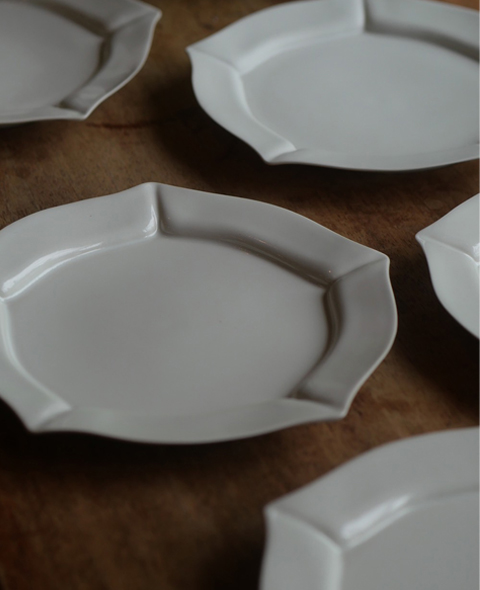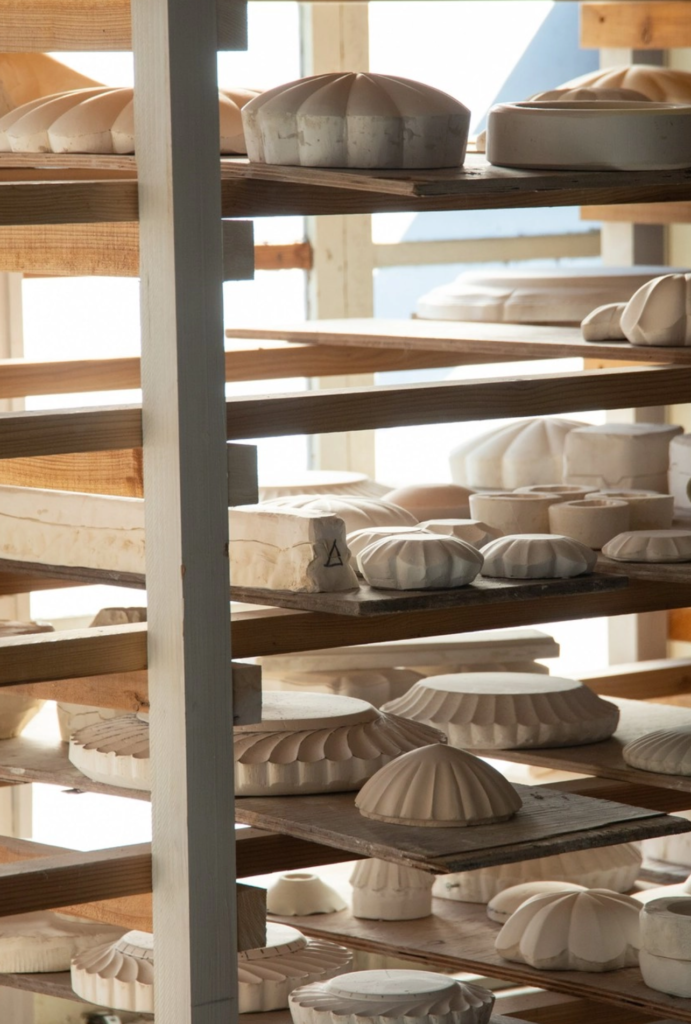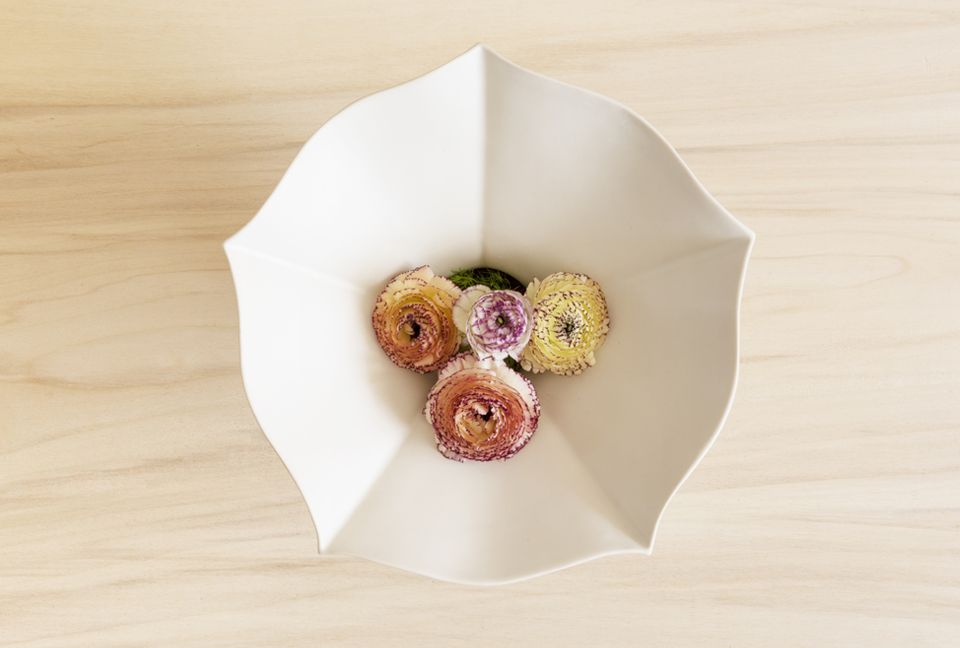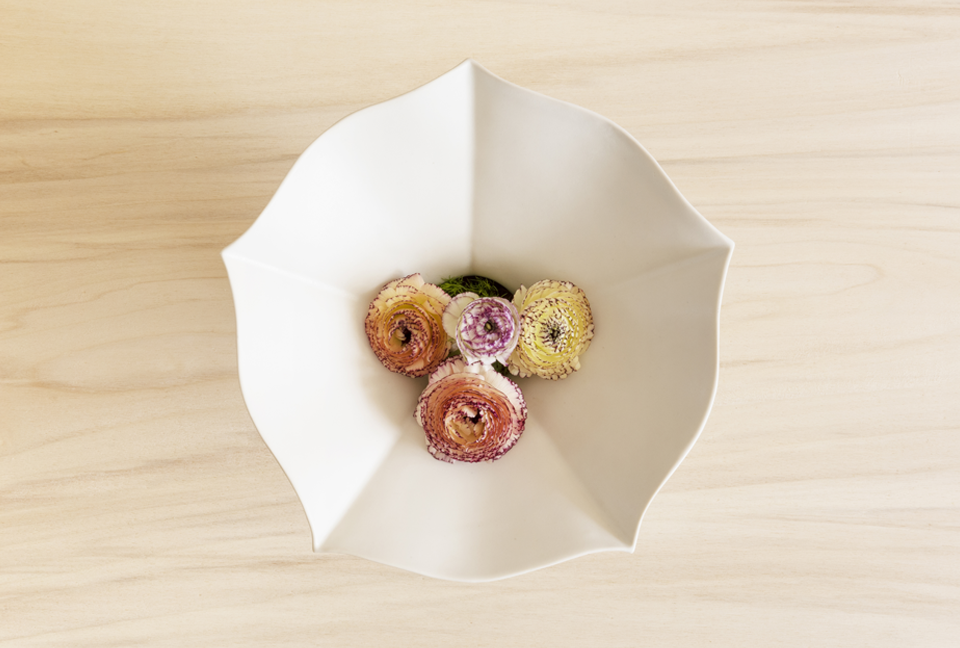Step into the enchanting world of Usukiyaki, a legacy born about 200 years ago during the Edo period. In the heart of Usuki city’s Sueba district, craftsmen from Nagasaki, Fukuoka, and Miyazaki shaped pottery and porcelain at the official kiln of the Usuki domain. Named “Suehiroyaki” and “Sarayamayaki” after its location, this kiln thrived for a decade, leaving a profound mark on history.
Fast forward to 2015, where the UsukiYaki Research Institute, led by Hiroyuki Usami and potter Washio Yashijiri, breathed life back into the surviving records of the Sueba (Sarayama) kiln. By arranging cultural fragments left by predecessors, they birthed modern pieces under the name “Usukiyaki,” resurrecting the lost kiln culture in Usuki.
Digging into the remaining records, they uncovered porcelain treasures from Shimabara, adorned with intricate floral patterns on a white porcelain canvas. Harnessing this inspiration, mold casting techniques were introduced, giving rise to the captivating White Porcelain Floral Series.
What began as a journey for two individuals expanded into the flourishing UsukiYaki Research Institute, now operating in two locations: the institute itself and the Atelier Sarayama within the captivating ‘Usuki Sarayama’ facility. The diverse team, resonating with Usukiyaki’s vision, comprises professionals from various fields, backgrounds, generations, genders, and nationalities.
Nestled in the southeast of Oita Prefecture, Usuki City radiates charm with its mountainous backdrop adorned with cherry blossoms and lotuses. Shaped by Usuki Castle, the city’s brewing industry, thriving since 1600, harmonizes with nutrient-rich geological conditions and pure water. Recognized in 2021 by UNESCO, Usuki celebrates its diverse food culture, boasting traditional yet improved miso, soy sauce, sake brewing, and locally born dishes crafted through frugal innovation.
“Utensils are the frame for cuisine,” echoes the culinary harmony of Usukiyaki. Inspired by natural forms and materials, these utensils coexist with the rich culinary traditions of Usuki. Each vessel, engraved with the region’s nature and design, aims to convey the culture born in Usuki, creating simple yet vibrant pieces that bring joy to users.
“Crafting enduring products for long-lasting use” defines the essence of Usukiyaki’s craftsmanship. Shapes inspired by nature undergo meticulous manual processes, demanding time and effort. Valuing limited resources, the goal is to create enduring, environmentally friendly, and sustainable products cherished by both creators and users alike. This unique pottery, born from the bountiful nature of the region, invites you on a sustainable and timeless journey.
USUKIYAKI
200 years of tradition
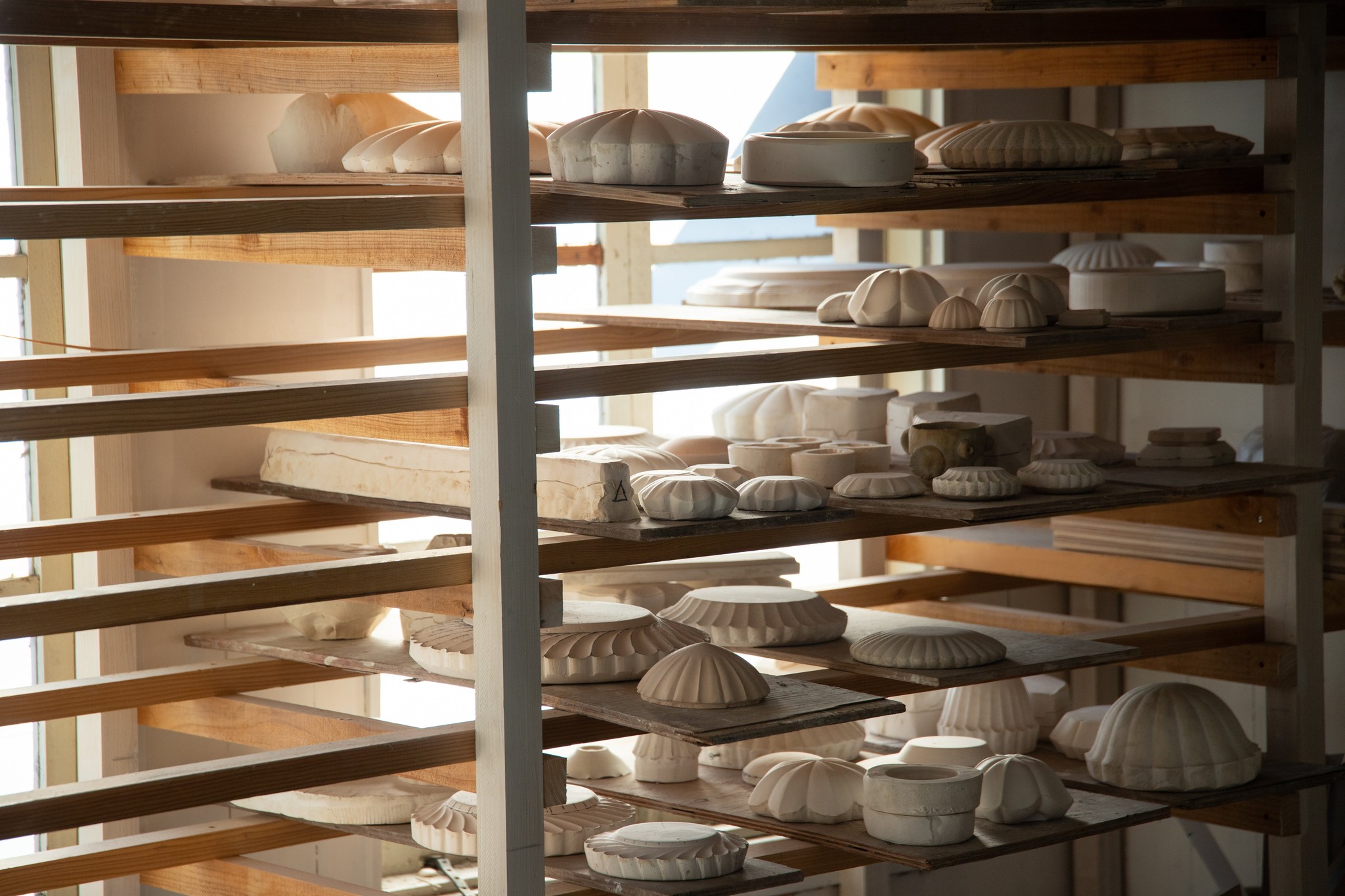
Step into the enchanting world of Usukiyaki, a legacy born about 200 years ago during the Edo period. In the heart of Usuki city’s Sueba district, craftsmen from Nagasaki, Fukuoka, and Miyazaki shaped pottery and porcelain at the official kiln of the Usuki domain. Named “Suehiroyaki” and “Sarayamayaki” after its location, this kiln thrived for a decade, leaving a profound mark on history.
Fast forward to 2015, where the UsukiYaki Research Institute, led by Hiroyuki Usami and potter Washio Yashijiri, breathed life back into the surviving records of the Sueba (Sarayama) kiln. By arranging cultural fragments left by predecessors, they birthed modern pieces under the name “Usukiyaki,” resurrecting the lost kiln culture in Usuki.
Digging into the remaining records, they uncovered porcelain treasures from Shimabara, adorned with intricate floral patterns on a white porcelain canvas. Harnessing this inspiration, mold casting techniques were introduced, giving rise to the captivating White Porcelain Floral Series.
What began as a journey for two individuals expanded into the flourishing UsukiYaki Research Institute, now operating in two locations: the institute itself and the Atelier Sarayama within the captivating ‘Usuki Sarayama’ facility. The diverse team, resonating with Usukiyaki’s vision, comprises professionals from various fields, backgrounds, generations, genders, and nationalities.
Nestled in the southeast of Oita Prefecture, Usuki City radiates charm with its mountainous backdrop adorned with cherry blossoms and lotuses. Shaped by Usuki Castle, the city’s brewing industry, thriving since 1600, harmonizes with nutrient-rich geological conditions and pure water. Recognized in 2021 by UNESCO, Usuki celebrates its diverse food culture, boasting traditional yet improved miso, soy sauce, sake brewing, and locally born dishes crafted through frugal innovation.
“Utensils are the frame for cuisine,” echoes the culinary harmony of Usukiyaki. Inspired by natural forms and materials, these utensils coexist with the rich culinary traditions of Usuki. Each vessel, engraved with the region’s nature and design, aims to convey the culture born in Usuki, creating simple yet vibrant pieces that bring joy to users.
“Crafting enduring products for long-lasting use” defines the essence of Usukiyaki’s craftsmanship. Shapes inspired by nature undergo meticulous manual processes, demanding time and effort. Valuing limited resources, the goal is to create enduring, environmentally friendly, and sustainable products cherished by both creators and users alike. This unique pottery, born from the bountiful nature of the region, invites you on a sustainable and timeless journey.
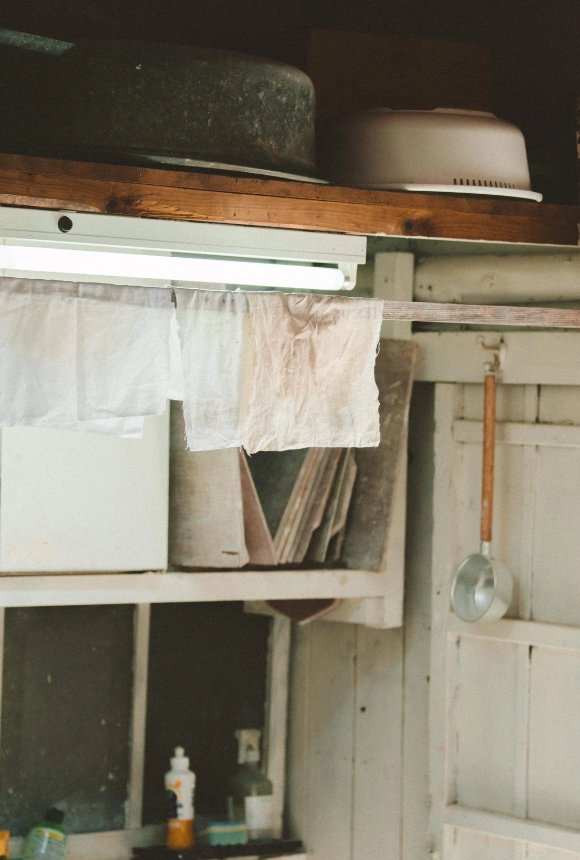
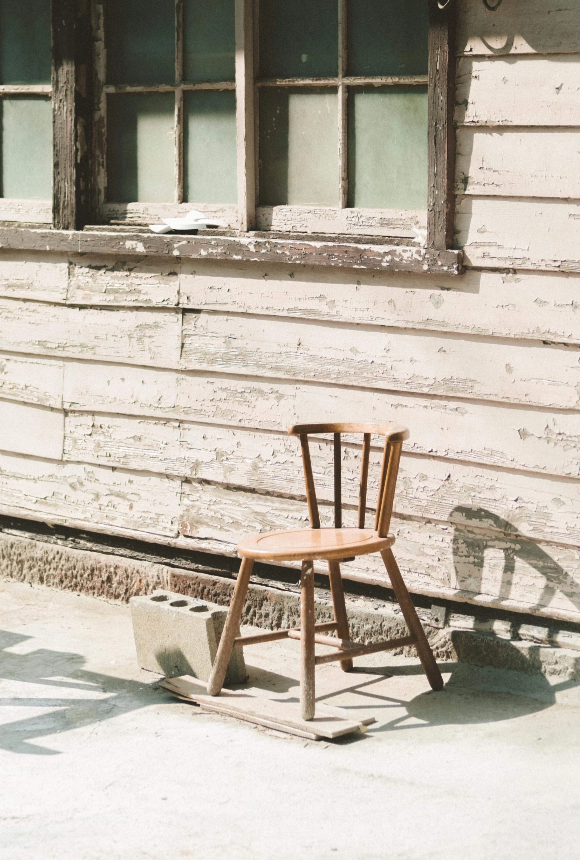


Usukiyaki frames the flower/food displayed on it.
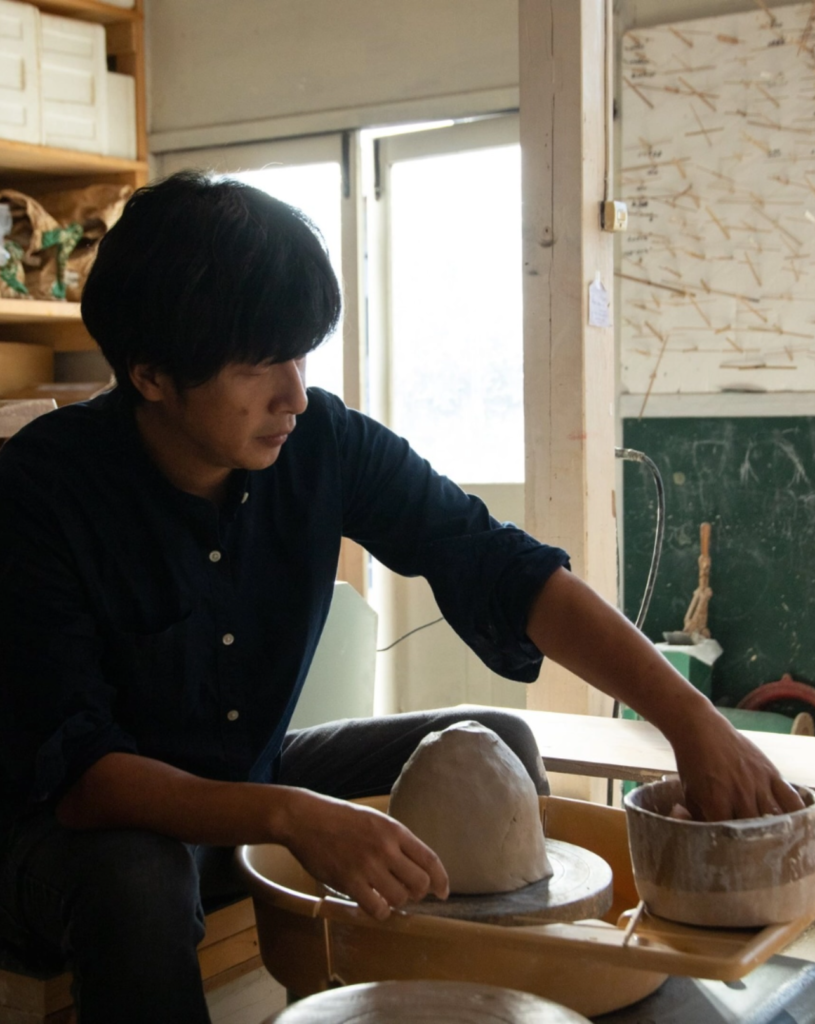
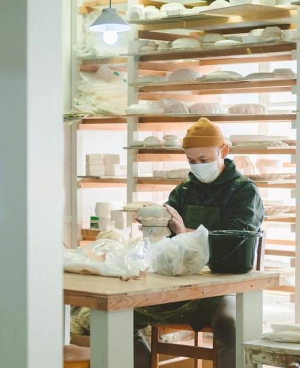
Usukiyaki frames
the flower/food
displayed on it.
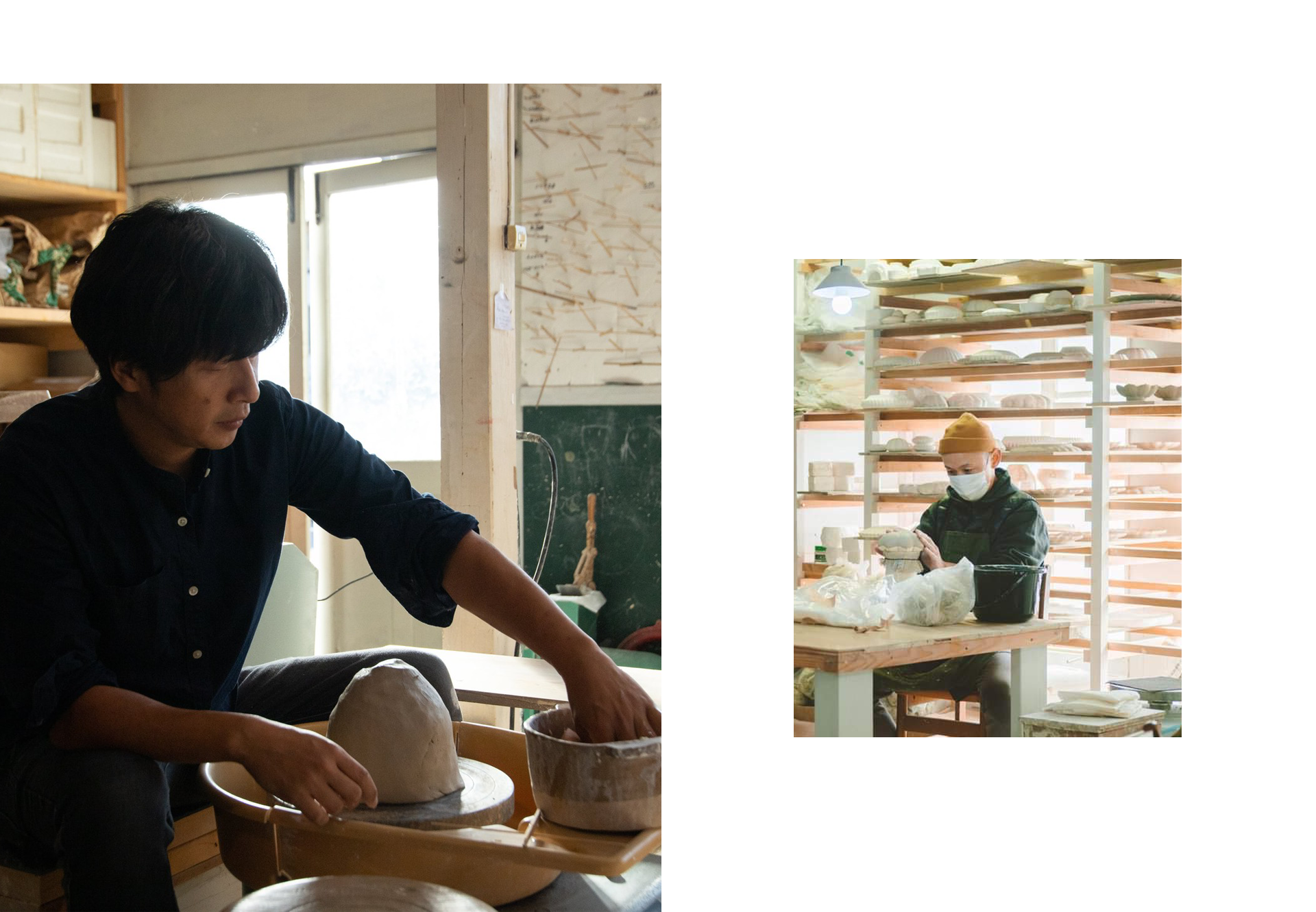
TRADITION
& KNOW-HOW
Explore the unique craftsmanship of Usukiyaki, where hand-carved plaster molds shape clay into vessels refined through various techniques. Adorned with the essence of manual work, these pieces feature a matte-textured glaze, offering a soft touch.
TRADITION & KNOW-HOW
Explore the unique craftsmanship of Usukiyaki, where hand-carved plaster molds shape clay into vessels refined through various techniques. Adorned with the essence of manual work, these pieces feature a matte-textured glaze, offering a soft touch.
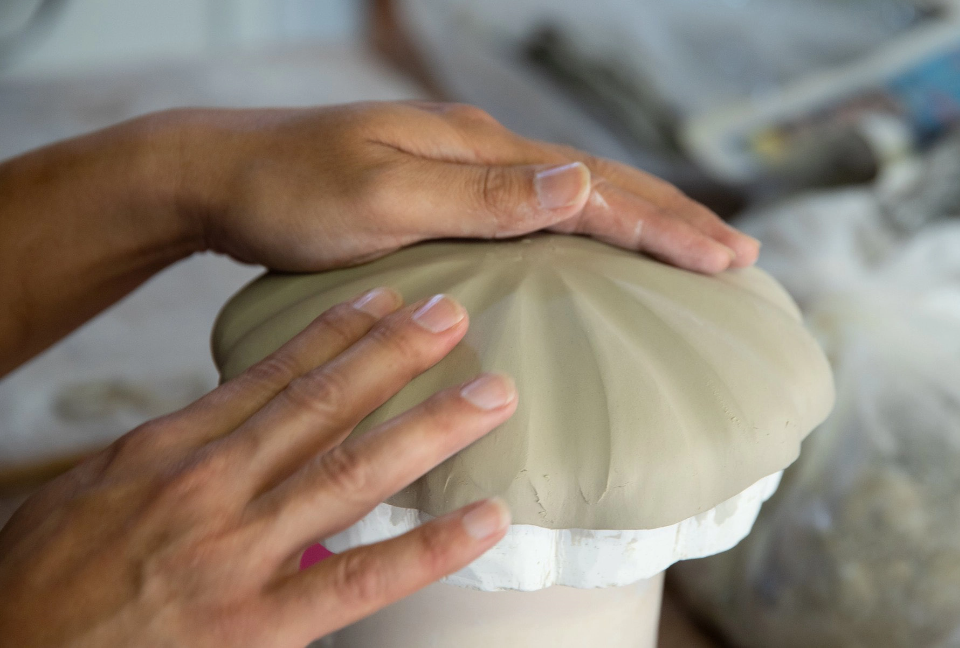
Crafted from locally sourced clay, each Usukiyaki vessel, shaped through manual craftsmanship, boasts distinct characteristics. Mold casting (katauchi) is employed, with the technique involving rolling out clay, smoothing with a spatula, and shaping onto hand-carved plaster molds. This preserves a unique handmade texture, resulting in porcelain pieces with an earthenware-like appearance.
Crafted from locally sourced clay, each Usukiyaki vessel, shaped through manual craftsmanship, boasts distinct characteristics. Mold casting (katauchi) is employed, with the technique involving rolling out clay, smoothing with a spatula, and shaping onto hand-carved plaster molds. This preserves a unique handmade texture, resulting in porcelain pieces with an earthenware-like appearance.
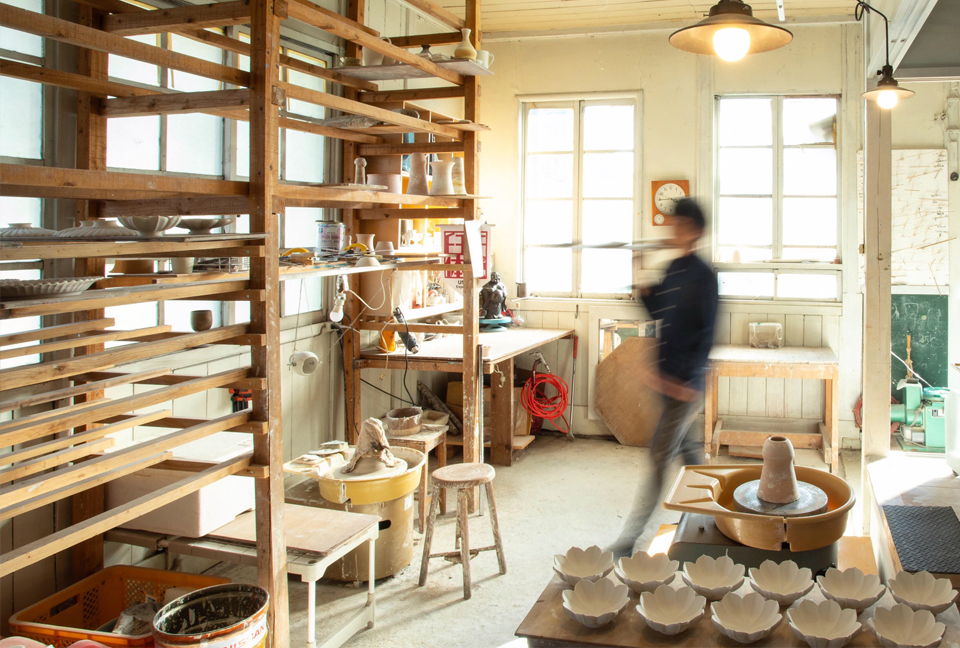
SHOP
GLORIA
The GLORIA Vase, inspired by the ephemeral morning glory flower, symbolizes longevity through its enduring form.
Our designs are handcrafted using the highest quality materials with
naturally occurring variations making each piece unique.
